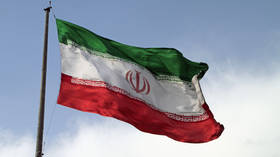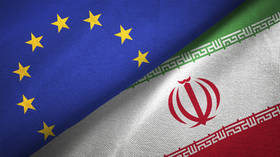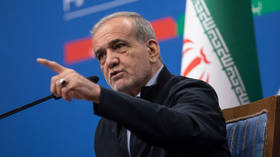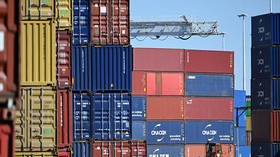Iran shuts down nuclear watchdog’s cameras
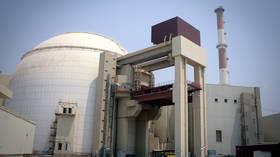
Tehran has announced it is ceasing “voluntary” cooperation with the International Atomic Energy Agency (IAEA) outside of the Nuclear Nonproliferation Treaty (NPT), on Wednesday. The move would see the UN nuclear watchdog’s cameras at the Iranian nuclear facilities dismantled if they are not covered by the NPT safeguards, the Iranian authorities have explained.
The announcement came as Iran shut down an On-Line Enrichment Monitor (OLEM) and a flow meter set up by the IAEA at one of its nuclear sites. Tehran has accused the UN watchdog of not “appreciating” the “extensive cooperation” it had with the Iranian authorities.
The IAEA has failed to understand that this cooperation was a result of Tehran’s “goodwill,” the nation’s atomic energy organization (AEOI) has said in a statement, adding that the IAEA has instead “considered it a duty of Iran.”
The AEOI then said it decided to disconnect two of the IAEA’s monitoring cameras, adding that most cameras are still covered by the NPT safeguards and would “operate as before.” According to Iranian media, some 80% of monitoring cameras do fall under this agreement.
The AEOI's spokesman, Behrouz Kamalvandi, who oversaw the dismantling procedure, then told Iran’s national TV broadcaster that Tehran would “cease … cooperation that was outside of the [NPT] safeguards agreement.”
Tehran is now mulling “additional measures” in the same field, Kamalvandi has told the journalists. “We plan other steps. We expect them [IAEA] to come to their senses, and reciprocate Iran’s cooperation. It is not acceptable for Iran to continue cooperation, whilst the other side does not show proper behavior,” he said.
The move comes in response to a draft resolution submitted by the US, the UK, France and Germany to the IAEA board on Tuesday. The document accuses Iran of not fully answering the UN nuclear watchdog’s questions about some uranium traces at what has been called undeclared sites. The document is still expected to be debated and voted-on later this week at a quarterly meeting of the 35-nation IAEA board.
“Safeguards issues” at the three supposedly undeclared nuclear sites in the Islamic Republic “remain outstanding due to insufficient substantive cooperation by Iran, despite numerous interactions with the agency,” says the document, seen by Reuters.
Tehran has argued that it voluntarily expanded its cooperation with the IAEA beyond the NPT safeguards agreement and expected the collected data not to be shared without Tehran’s consent. “Iran has no hidden or undocumented nuclear activities or … undisclosed sites,” the AEOI head, Mohammad Eslami, said on Wednesday, branding all the evidence on their alleged existence “fake documents” aimed at maintaining “maximum pressure” on Tehran.
Iran has struck a deal on its nuclear program with the world powers back in 2015. Tehran agreed to additional IAEA controls over its nuclear sites and certain enrichment thresholds in exchange for sanctions relief.
In 2018, then-US President Donald Trump’s administration unilaterally left the deal and reimposed sanctions against Iran, targeting its oil, petrochemicals, shipping and other sectors. After Joe Biden became US president, the talks between Iran and the world powers on the issue have resumed but stalled again in March after a year of negotiations.
Iran demanded guarantees from Washington that any future US president would not withdraw from a new agreement, and asked the US to remove Iran’s Islamic Revolutionary Guard Corps from its list of terrorist organizations. The US has not responded to these requests.
